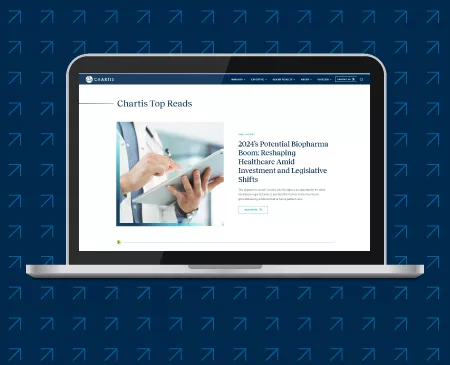The Buzz This Week
The start of 2024 has brought with it what is estimated to be the second largest surge of COVID-19 cases since the beginning of the pandemic. Only the first Omicron wave in January 2022 is expected to have had more positive cases. Much like the last 2 years, this rise in COVID cases comes at the same time as high numbers of flu, RSV, and other winter virus illnesses. During the last week of December, more than 7% of all outpatient visits in the United States were related to respiratory illness.
The latest surge is the result of the highly contagious JN.1 variant. While the spike protein on JN.1 has just 1 additional mutation from last year’s less contagious BA.2.86, it has quickly become the predominant variant and is estimated to make up more than 60% of new COVID cases. Despite its rapid spread, disease severity in the JN.1 variant does not appear to be worse than other variants. Hospitalizations and deaths attributable to COVID are down from one year prior, according to provisional Centers for Disease Control and Prevention (CDC) data.
Another reason severe cases have remained lower is because much of the population has some immunity through vaccination and previous disease exposure. Uptake of the newest COVID vaccination is relatively low, but experts note that even though the booster targets Omicron subvariant XBB.1.5, not JN.1, it still appears to offer significant protection against severe disease. Most hospitalizations continue to be high-risk populations who have not received updated vaccinations.
Why It Matters
While it is clear this most recent COVID surge is significant, assessing exactly how large a spike it is and where hotspots are has become more complex since the pandemic designation ended. The CDC no longer tracks exact case counts. Testing requirements for work, appointments, and travel have largely been eliminated, therefore reducing test-taking. And the majority of tests that are completed are done at home without being officially reported. All of these changes make it more difficult to understand the spread of the virus.
Without consistent test reporting, wastewater testing is one of the strongest and most reliable predictors of COVID surges. Wastewater testing is uniquely beneficial in that everyone is included, even if someone has not tested for COVID, and it can often be a leading indicator as opposed to hospitalizations, which often lag surges. Wastewater indicates this current JN.1 peak will be very high. By some estimates, there could be more than 1 million new infections per day. The CDC’s National Wastewater Surveillance System shows every reporting state at high or very high, with the surge peaking this week or next and remaining high for at least an additional month.
Wastewater testing also has its drawbacks. It is almost impossible to convert a volume of viral load to case counts, and many factors can influence a particular sample, including the local population during a given sample and the levels of industrial waste included. The CDC collects information from across the country and aggregates to identify national trends, but those estimates only cover approximately 40% of the population. Data lapses and contractor changes can also make the data more problematic to compare year over year.
Regardless of the measure being utilized, it is evident there is currently a significant COVID surge underway. Experts agree that much of the guidance in this new surge remains the same—wear a high-quality mask, test yourself and stay home if feeling sick, and get the updated vaccination.
RELATED LINKS
New York Times:
We Are in a Big Covid Wave. But Just How Big?
Time:
We’re In a Major COVID-19 Surge. It’s Our New Normal
AP News:Nearly 10,000 died from COVID-19 last month, fueled by holiday gatherings and new variant, WHO says
JAMA Network:as cOVID-19 Cases Surge, Here’s What to Know About JN.1, the Latest SARS-CoV-2 “Variant of Interest”
Editorial advisor: Roger Ray, MD, Chief Physician Executive.







